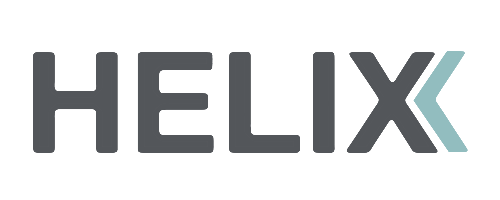
Shopify vs Etsy: Which Should You Choose?
Share
If you’re building an online store, you’ve probably heard about Shopify and Etsy. Both are popular selling platforms, but the main difference with Etsy is that it is a marketplace for individuals to sell handmade, vintage, and craft goods.
In simpler terms, think about Etsy as setting up a stall at a craft fair while Shopify is more like building your own store.
To help you decide which is best for your business, let’s take a look at some of the key differences as well as the advantages and disadvantages of each platform.
Ease of Use
Shopify is designed to help you build your store as easily as possible. With its clear, user-friendly interface, even users with no technical background can manage their sales, inventory, and products with a simple drag-and-drop.
With Etsy, rather than creating a whole website, you only need to name and set up a store which makes it great for beginners wanting to sell quickly. Although it’s just as intuitive as its competitor, it does not offer any of the powerful ecommerce tools that are found in Shopify.
Features
When it comes to ecommerce tools, Shopify is a clear winner, offering advanced features that every thriving business needs. With any payment plan, users get access to daily backups, discount codes, over 100 payment options, and more. This is in addition to its extensive app store that allows users to expand their store as and when they need to. Offering over 2400 apps, it’s another level of customization that Etsy can’t compete with.
Etsy’s ecommerce features are basic but appropriate for small scale selling. Its marketing tools allow users to create coupons, attract new followers, and share their products across multiple social platforms.
Also, it’s important to note that more sales tools are available if you upgrade to Etsy Plus.
Finally, Etsy does not provide an inventory system, meaning that users must track and analyze their inventory and sales on their own. This can be a daunting and time-consuming tasks as your business grows.
Design
The prime difference between these platforms is that Shopify allows for customization whereas Etsy does not. Offering over 60 stylish themes that cover a range of different industries, Shopify’s ability to customize makes it ideal for building and growing a unique brand.
The global design applied to all Etsy stores allows little room for your brand to stand out. In fact, you store will look very similar to other Etsy shops. This can work if you have a small shop selling only a handful of items, but might be counterproductive if you plan to grow your store and promote your business.
Domain Name/URL
With Shopify, business owners are able to create a custom domain which establishes their brand and professionalism. A personal domain name is not possible with Etsy because you’re selling through Etsy’s marketplace. Without this option, your business becomes a lot harder to identify and as a result, your growth can be stunted.
Getting Visitors to your Site
As an established and popular marketplace, Etsy attracts 33 million buyers. This means that in addition to any visitors you bring directly to your shop, your products receive great exposure with very little effort required on your end.
Like Google, Etsy has its own search engine algorithm, which makes ranking much easier. Although Etsy is a large marketplace, it only has a fraction of Google’s traffic.
When building a Shopify store, it’s important to note that a lot of work will have to be made into ranking your store on Google. This can be exceptionally difficult for small businesses who have fewer resources and lower budgets.
Search engine optimization requires a lot of time and effort, so small, handmade businesses who are just building their brand might be better suited with Etsy’s marketplace.
Fees and Pricing
Shopify offers three tiered monthly plans starting at $29 and climbing to $299. All plans provide everything you need to grow your business and offer great value for money because of the plethora of features and scalable growth that come with them.
While Etsy does not charge a monthly fee unless you choose to upgrade to the $10 Plus plan, it does charge a listing fee of $0.20 per item plus a 3.5% transaction fee per sale plus credit card fees. Now, if your business is small, this won’t set you back too far, but it will put a considerable dent in your pocket if sales start picking up.
In comparison, Shopify’s in-house payment gateway, Shopify Payments, eliminates any transaction fees. This means you only have to pay the credit card processing fee which, at 2.2% + $0.30, is much lower than Etsy’s. Therefore, depending on the size of your business, Shopify may be better value for your money.
In short, while Shopify has higher upfront costs, Etsy’s expensive fees can set you further back in the long run, especially as your business continues to grow.
Support
Shopify offers comprehensive assistance through community forms, emails, social media, video tutorials, and 24/7 phone and live chat support. Its in-depth support gives it a significant edge over Etsy which purely offers a help center and community form.
Winner:
Shopify for Small Businesses
Etsy for Niche Handmade Businesses
Shopify’s scalable plans and powerful ecommerce tools provide everything your business needs to thrive. With no limitations on what you can sell, it’s the best option for established brands or small business looking to grow.
In contrast, Etsy’s basic features and smaller landscape make it the better option for merchants looking to sell niche handmade products. These merchants don’t require all the bells and whistles that come with Shopify and can find better success on a smaller marketplace like Etsy.
Ready to migrate from Etsy? Contact us for a custom quote here.